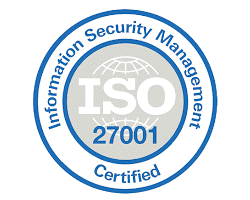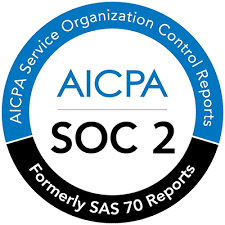
In today’s ever-evolving cyber and risk landscape, information security has come to the forefront to combat the sophistication of cyberattacks and the constantly changing technology framework. Two widely recognized information security standards stand out in this arena: ISO 27001 and SOC 2.
Both ISO 27001 and SOC2 provide companies with strategic frameworks and standards to measure their security controls and systems against. While both aim to fortify an organization's information security posture, they differ in their approach and applicability. Let's unravel the intricate details of these standards and decipher which one suits your organization's unique needs.
ISO 27001 is an international standard that provides a framework for managing information security risks. It is a prescriptive standard, meaning that it outlines specific controls that organizations must implement to achieve certification. ISO 27001 is a comprehensive standard that covers a wide range of topics, including physical security, access control, data security, and incident management. The ISO standard is developed and regularly updated by the International Standards Organization.

Scope and Focus: ISO 27001 takes a holistic approach to information security. It's about understanding, managing, and mitigating risks associated with information assets, encompassing everything from data protection to physical security.
Applicability: ISO 27001 adheres to a globally recognized set of standards. Its flexibility allows organizations to adapt and implement controls that suit their specific needs while following a structured framework. Versatility is the name of the game with ISO 27001. From tech startups to healthcare institutions, any organization can harness its power to safeguard sensitive information.
Certification Process: ISO 27001 certification requires an annual audit conducted by an accredited certification body. ISO 27001 certification involves a rigorous process that culminates in a certificate validating an organization's compliance with the standard. Auditors from accredited certification bodies examine the entire system for its effectiveness in managing risks.
Requirements: ISO requires some mandatory documents for certification, the requirements are mentioned in the standard document and will be requested by the auditor during the audit. They are as listed below:
Reporting: The end result is a tangible ISO 27001 certificate, that will be given with an assessment report which will have the auditor’s findings based on the audit conducted.
Validity/Renewal: ISO 27001 certification is valid for three years, with surveillance audits conducted annually.
SOC 2 is a set of auditing procedures that are developed by the American Institute of Certified Public Accountants (AICPA). SOC 2 reports are designed to provide assurance to customers that an organization has implemented effective controls to protect their data. SOC 2 is a more flexible standard than ISO 27001, and it allows organizations to tailor their controls to their specific risks and needs. There are two types of SOC2 Audits, SOC Type 1 and SOC2 Type2:
SOC 2 Type 1 and SOC 2 Type 2 differ in the assessment and monitoring period of the internal controls. SOC 2 Type 1 evaluates the design of the security controls at a point in time, whereas SOC 2 Type 2 reviews the design and operating effectiveness of the controls over a period of 3-12 months.
While ISO 27001 is the jack-of-all-trades, SOC 2 Type 2 is specifically tailored to assess an organization's controls related to the five principles. This certification focuses on specific Trust Services Criteria—security, availability, processing integrity, confidentiality, and privacy.

Scope and Focus: SOC 2 Type 2 zeroes in on the trustworthiness and reliability of a service organization's systems. It ensures that customer data is secure, available, and confidential.
Framework and Standards: AICPA's Trust Services Criteria provides the foundation for SOC 2 Type 2. It's more industry-specific, tailor-made for service organizations dealing with sensitive customer information.
Applicability: This certification is the go-to for service providers, including cloud service companies, data centres, and software-as-a-service (SaaS) providers. It speaks directly to the concerns of customers entrusting their data to third parties.
Certification Process: The SOC 2 Type 2 certification process is unique, with independent CPA firms conducting audits. These audits evaluate controls over a defined period, usually six months or longer, ensuring they meet the Trust Services Criteria.
Reporting: The crown jewel of SOC 2 Type 2 is the comprehensive SOC 2 report. This report, issued by the CPA firm, outlines their findings, conclusions, and recommendations related to the controls in place.
Validity/Renewal: SOC 2 attestation reports are valid for one year, requiring annual re-attestation.
| Feature | ISO 27001 | SOC 2 |
| Type | Certification | Attestation |
| Definition | A standard that sets the requirements for an ISMS | Set of audit reports to evidence the level of conformity to a set of defined criteria (TSC) |
| Focus | Information security management system (ISMS) | Data security controls |
| Applicability | Designed to be used by any organization of any size or any industry | Organizations in the Service Industry across all industries |
| Scope | Comprehensive | Tailorable |
| Compliance | Certification issued by ISO Certification Body | Attestation by a Certified Public Accountant (CPA) |
| Audit | Annual (Surveillance) | Annual |
| Renewal | Every 3 years | Every year |
The ISO 27001 report is a detailed document that outlines the organization's ISMS. It includes information about the organization's information security policies, procedures, and controls. The report also includes the results of the audit, which will identify any areas where the organization needs to improve its information security.
The ISO 27001 report typically includes the following sections:
The SOC 2 report is a detailed document that outlines the organization's controls for one or more of the following Trust Services Criteria (TSC):
When it comes to ISO 27001 versus SOC 2 Type 2, the choice depends on your organization's nature and specific requirements. ISO 27001 is your passport to universal information security, applicable to diverse industries, while SOC 2 Type 2 is the trusted guardian of customer data for service providers.
The best report for your organization will depend on your specific needs and risks. If you are looking for a comprehensive report that outlines all of your organization's information security controls, then the ISO 27001 report may be a good option. If you are more concerned with providing assurance to your customers about your controls for a specific TSC, then the SOC 2 report may be a better choice.
COMPASS, a specialized lightweight platform, enhances your Internal Audit and external audit processes and user experience. Some of the benefits of using COMPASS include:
Whether you choose ISO 27001's structured framework or SOC 2's tailored approach, both standards offer valuable guidance in fortifying your organization's information security posture. Remember, the journey to information security excellence is an ongoing process, not a destination. By continuously evaluating, refining, and adapting your information security practices, you can safeguard your organization's sensitive data and maintain the trust of your customers.